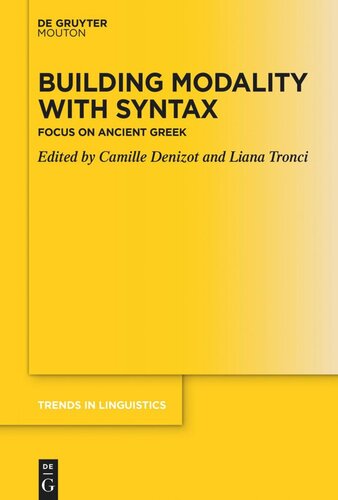

Most ebook files are in PDF format, so you can easily read them using various software such as Foxit Reader or directly on the Google Chrome browser.
Some ebook files are released by publishers in other formats such as .awz, .mobi, .epub, .fb2, etc. You may need to install specific software to read these formats on mobile/PC, such as Calibre.
Please read the tutorial at this link: https://ebookbell.com/faq
We offer FREE conversion to the popular formats you request; however, this may take some time. Therefore, right after payment, please email us, and we will try to provide the service as quickly as possible.
For some exceptional file formats or broken links (if any), please refrain from opening any disputes. Instead, email us first, and we will try to assist within a maximum of 6 hours.
EbookBell Team

4.4
82 reviewsDespite the intensive research carried out in recent years, modality remains an intriguing and challenging issue in linguistics. This book investigates modality from a syntactic viewpoint and with a bottom-up approach. A strong focus of the book is the interaction between the different linguistic tools that build modality (moods, modal verbs, modal adverbs, etc.), taking both the role of syntactic structure and the compositionality of modal meanings into account. The volume comprises corpus-based studies devoted to several syntactic aspects of modality in Ancient Greek, within different theoretical frameworks. The chapters shed new light on different modal categories (e.g. epistemicity, possibility, counterfactuality, evidentiality, subjectivity) and show how these modal meanings arise from the combination of different linguistic devices in specific syntactic contexts (e.g. combinations of modal elements, types of main and dependent clauses, types of illocutionary acts, etc.). By approaching modality from a different perspective and providing an up-to-date discussion of several aspects of modality, the book makes a significant contribution to current debates.